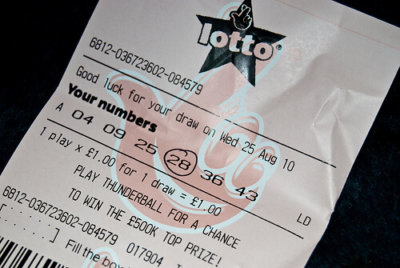Online Gambling Addiction- Should You Be Worried?

By: Don Hankins
An addiction is anything that starts to consume your thoughts and negatively affect your relationships, career, and finances.
And one of the fastest growing addictions at present is online gambling.
Just some online fun, or are you actually gambling?
No, you aren’t physically going to a casino or the races. But “just spending a few quid online now and then for fun” does not mean you are not gambling. If you are paying money to try to win money, it’s gambling.
All of the following qualify as online gambling:
- online casinos
- online poker and bingo
- sports betting and horse racing bets placed online
- playing the national lottery on the internet
- live in-play gambling.
Is it a hobby, or a gambling problem?

By: Iain Watson
Most of us buy a lotto ticket online now and then. This alone does not compose a gambling problem.
You have an issue with gambling if it is becoming something that distracts you from day-to-day life and if it has become an impulse you can’t actually control (even if you tell yourself you can).
Look for the following basic signs of a gambling addiction:
- gambling is causing you to be secretive
- the time and money you spend on online gambling is increasing
- you think about online gambling often, such as at work or when out with friends
- you are gambling online even if you don’t really have the money for it
- your friends and/or family are worried
- you have tried to stop but can’t.
[For more information, read our article on gambling addiction and counselling, or our comprehensive Guide to Addiction.]
Do these excuses sound familiar?
Not sure if you have a problem with online gambling ? Making excuses is often a surefire sign of growing addiction.
See if the following sound familiar:
- I never spend more than a few quid.
- It’s just for fun.
- I do it for the love of the game.
- I only do it a few hours a week.
- It’s just something I do when I’m bored, it’s not serious.
- I have this under control.
- Nobody knows about it.
- It doesn’t hurt anyone.
- It’s my money, I can spend it how I like.
- I can afford it so it doesn’t matter.
- I’m using official sites, just playing the lottery, surely that’s ok.
- It’s not like I’m spending money on drugs or something.
- My friends online gamble too and they don’t have a problem.
My friends do online gambling too – why is it me who is addicted and not them?

By: Joseph Xuereb
What makes one person prone to addiction, and not another? It’s a complex question and can vary for each individual.
It’s thought that there can be a genetic component – if you have a parent with addictive behaviours, you might be more prone to them yourself.
Or it could be learned behaviour. We tend to mimic in our own lives what we watched growing up until we take the time to assess our choices and make different ones.
From a psychological angle, addictions can be seen as an attempt to escape emotional pain, and also stem from an inability to feel connected to others. This means that other factors that can lead to addictive behaviour include:
- hostile or stressful relationships with parents growing up
- lack of childhood attachment
- childhood trauma including sexual abuse
- personality disorders
- Adult ADHD.
Why is online gambling such a growing concern?
It’s down to accessibility. Yes, the UK has put new guidelines into play and it’s not legal to gamble online if you are under 18.
But online gambling means you can take a risk anywhere you have an internet signal and a mobile phone – which in modern life is almost anywhere and anytime. It gives new meaning to ‘instant gratification’ if you have a tendency to gamble.
It’s ease of use also means it’s easier to convince yourself you are not gambling or don’t have a problem. You aren’t driving to the casino for all to see, you are using your phone. Nobody will suspect you are gambling, and it’s easier to tell yourself ‘it’s not a big deal’ and hide your addiction even while playing in front of everyone.
As for the numbers, it’s estimated online gambling will see a shocking global spend of over $55 billion by 2018. In the UK alone there has been a 10% increase in the last year in those who gamble online, and statistics also show that the new rising concern is amongst young people who are being targeted by advertisements. The UK’s Gambling Commission recently found that 68% of 18-24 year olds who have gambled have done so after seeing an advert on social media.
Can Counselling Really Help With Addiction?
Absolutely. A psychotherapist or counsellor who specialises in helping those with addictions can help you get to the root of why you are driven to gamble in the first place. They can also help you get back on track with your career and relationships if these things have suffered because of your gambling habit.
Harley Therapy puts you in touch with experienced addiction counsellors in three London locations. If you aren’t in the UK, we can connect you with therapists worldwide via online therapy.
Still have a question about online gambling problems? Or want to share your personal experience with our readers? Use the comment box below.





Such a Amazing article of online gambling addiction!
Glad you liked it.
Its gutting knowing its a problem when you could have stopped but self destruction is just the way
Yes, online gambling addiction is a serious issue that warrants concern. It will affect to your health and mental health. So better never engage to gambling.
The first thing I would do is stop gambling – any and all forms of gambling, land-based as well, including not buying lottery tickets
Online gambling addiction is a serious issue with far-reaching consequences, and it’s important to approach it with awareness and proactive measures.